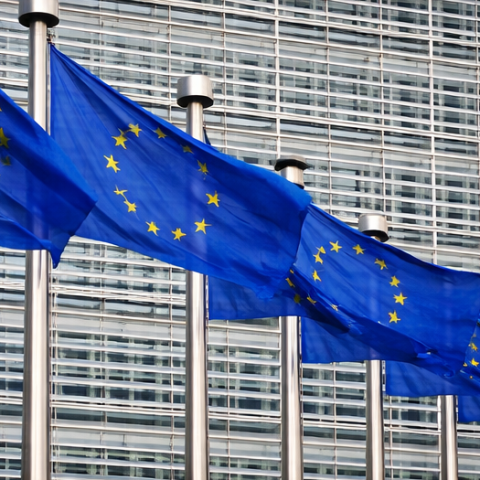ARBEN RAMKAJ
Covid-19 pandemic has officially infected nearly 35 million people worldwide and has claimed an estimated 1 million lives. Although the over 50 million deaths during the Spanish flu pandemic in 1918-1920 offer a consolation to the current situation, yet the coronavirus has distorted life’s normalcy in the entire globe.
With minimal exceptions, almost every country has suffered local, regional or national isolations which have caused severe economic, social and psychological consequences. Nevertheless, the latter is scarcely referred to.
In such times, insecurity about life is considerably big. People need peace, comfort and hope. Thus, during the last months it has been noticed a vigorous return of people to religion and their Creator.
This recent development is one that I relish. Nevertheless, being a devoted religious practitioner, I would like to see people close to God even in normal situations. During these months governments have longed for help and they have indeed cooperated with religious communities to raise people’s awareness of the vital need for safety measures implementation. This has come naturally, as religious leaders are very helpful inconveying messages during times of crisis due to their vast communication networks and information on local communities.
Religious leaders can also use theology and stories to communicate vital public health advice, such as hand washing, by interpreting it both traditionally and contextually and thus making it more easily accepted by people.
Religious traditions remind people that their ancestors were tested and became stronger from the past challenges, assuring them that they will surpass this crisis as well.
Undeniably, they can also convey inaccurate and false information. Concretely, there have sadly been some extremist religious practitioners who have promoted dubious Covid-19 cures or have propagated apocalyptic visions which have escalated the fear and distrust during the pandemic. Under those circumstances, it is the moderate and holy books devotees’ duty to expose such propaganda and guide the believers duly.
On the other hand, numerous leaders of religious communities or institutions have failed to implement rigorously the measures recommended by public health authorities to curb the dispersal of the current pandemic.
Even though there has been no open rebellion against these measures, they have continued with the same religious practices, thus contributing in the proliferation of new outbreaks with Covid-19. The earliest example is the somehow mysterious Christian sect named Shincheonji or the Church of Jesus in South Korea which is attended by 200.000 people.
In March, the South-Korean authorities estimated that about 80 percent of the over twenty thousand positive cases were members of or frequented this church. Similar problems are detected in the Somali community in Sweden, Norway, Finland and England. Encouraged by the Swedish model of not taking any restrictive measures, Somali Muslim believers continued going and praying in mosques without maintaining social distance from one another. Consequently, 6 out of the first 15 victims of coronavirus in Stockholm were from Somali. In all the above mentioned countries, Somali communities have had a disproportional percentage of infected people relative to the rest of population.
In Kiev, Ukraine, over 140 monks of one of the oldest monasteries in the country were infected by the end of April. Several days later, Bishop Pavël, head of the Ukrainian Orthodox Church who had belittled the pandemic, was also infected.
Due to the emergency situation, Greece suspended all religious services by taking a sudden decision well ahead of Easter. Nevertheless, not everyone abided by the rules. The Bishop of Corfu, Nektarios, was accused by local authorities of having organized a mass in a church crowded with believers, despite of being violating the anti-Covid-19 regulations endorsed by the Holy Synod.
In Israel, being put under the pressure of the ultra-orthodox Jews against his coalition government, Prime Minister Benjamin Netanjahu refused to close synagogues during Yom Kippur holiday, despite the second wave of Covid-19.
I ruefully admit that similar situations exist in our country as well where the pandemic situation remains serious. Many EU countries have banned the entrance of Albanian citizens, precisely due to the high number of new cases of Covid-19 in relation to the population.
Despite some measures that our country took during the three months of total isolation, yet our healthcare system is immensely fragile in the face of such a health emergency which has brought even the richest countries of the world to their knees.
In the face of the state’s inaptitude to come to the aid of its citizens, everyone’s attitude and in particular the one of the leaders of religious communities, should be utterly responsible. Yet, this responsibility is not in the optimal level.
Safety measures have not been respected neither during the annual pilgrimage of the Bektashi believers in Mount Tomorr, nor during the pilgrimage in Shna Ndou church in Laç. Additionally, in many mosques, a huge number of believers attend as usual their Friday prayers, making it impossible to maintain social distance. The same phenomenon has been noticed in the masses of Orthodox or Catholic churches.
Clerics are not taking the pandemic seriously these last months. Their negligence, in addition to harming the economy and people’s health, is contradicting religious rules.
In one of the prophetic citations it is asserted: “When you hear that a plague is in a land, do not go to it and if it occurs in a land that you are already in, then do not leave it, fleeing from it.”
Let us therefore be inspired by the counsels and wisdom of God’s messengers in order to be realistic, to understand that what we are experiencing these months is out of the ordinary and to give our individual contribution in this collective struggle to defeat the pandemic.
The latter will certainly vanish one day and this assurance comes God and the invaluable contribution of the scholars. However, we should opt for this to happen with as little damage as possible.










